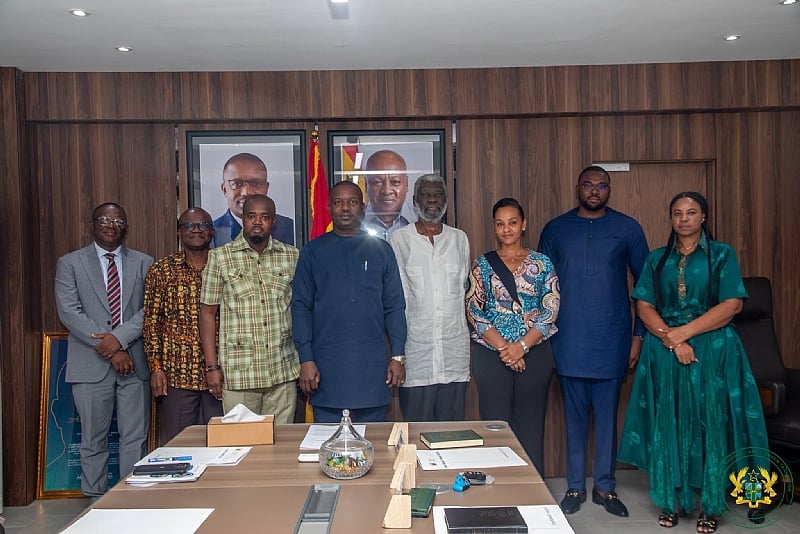The Ghanaian petroleum downstream sector, responsible for the refining, distribution, and marketing of petroleum products, is undergoing a significant transformation driven by the government’s commitment to enhance efficiency, transparency, and consumer protection. Central to this transformation is the newly inaugurated National Petroleum Authority (NPA) Board, tasked with the critical mandate of cracking down on illegal activities that plague the sector and ensuring Ghanaians have access to quality petroleum products at competitive prices. Minister for Energy and Green Transition, Mr. John Abdulai Jinapor, underscored the importance of the Board’s role in maintaining a robust and sustainable downstream petroleum sector.
Minister Jinapor’s directive to the NPA Board highlights the pervasive challenges facing the sector, including fuel smuggling, tax evasion, and product adulteration. These illegal activities not only deprive the government of much-needed revenue but also pose significant risks to consumers who are often exposed to substandard and potentially dangerous petroleum products. The Minister stressed the need for the Board to act decisively and impartially in enforcing regulations, sending a clear message that such illicit practices will not be tolerated. He emphasized the importance of collaboration with industry stakeholders to create a level playing field that fosters healthy competition and benefits both businesses and consumers. This collaborative approach seeks to address the root causes of these illegal activities by engaging with all stakeholders to find sustainable solutions.
The Minister’s pronouncements come on the heels of a comprehensive review of the petroleum downstream sector. A specially appointed committee has submitted its report, detailing recommendations for reform aimed at improving efficiency and sustainability. This indicates the government’s proactive stance in addressing the sector’s challenges and its commitment to implementing data-driven solutions. The Minister’s assurance that the government will carefully study and implement the necessary changes suggests a significant overhaul of the sector is on the horizon, aimed at long-term stability and growth. This review process demonstrates a commitment to evidence-based policymaking and a willingness to adapt regulations to meet the evolving needs of the sector.
The newly appointed NPA Board, chaired by Alhaji Huudu Yahya Iddrisu, embodies a blend of experience and expertise, reflecting the government’s focus on assembling a capable team to tackle the sector’s complexities. The Board comprises individuals with diverse backgrounds, including legal professionals, industry experts, and representatives from the NPA itself. This diversity is crucial for navigating the intricate regulatory landscape and ensuring balanced decision-making that considers the interests of all stakeholders. Chairman Iddrisu’s assurance of the Board’s commitment to delivering results underscores their understanding of the significant responsibility entrusted to them and their dedication to fostering a well-regulated and competitive petroleum market.
The Board’s composition reflects a strategic effort to ensure effective governance and oversight of the downstream petroleum sector. The inclusion of Mr. Elom L. Lardi Glawu, Dr. Clement Osei-Amodo, Mr. Godwin Tameklo (CEO of NPA), Sanja Anita Morrison Esq., Linda N. Ogebdei Quao Esq., and Philis Naa Koryoo Okuror brings a breadth of knowledge and experience to the table, encompassing legal expertise, industry knowledge, and regulatory experience. This diverse skillset is crucial for navigating the complex challenges facing the sector and developing effective strategies to address them. The presence of legal professionals on the Board underscores the importance of upholding the rule of law and ensuring that all activities within the sector comply with existing regulations.
The task before the NPA Board is multifaceted, requiring a comprehensive approach that addresses both the immediate challenges and the long-term sustainability of the sector. This includes strengthening enforcement mechanisms to curb illegal activities, promoting transparency and accountability in all transactions, and fostering a competitive market that benefits consumers. By working closely with industry players and implementing the recommendations from the sector review, the Board aims to create a stable and thriving petroleum downstream sector that contributes to Ghana’s economic growth and provides affordable and quality petroleum products to its citizens. The Board’s success will hinge on its ability to effectively enforce regulations, promote transparency, and foster collaboration among all stakeholders.


